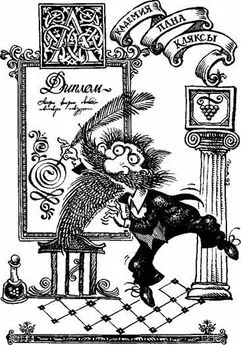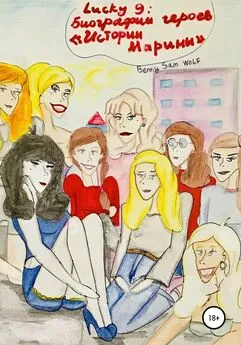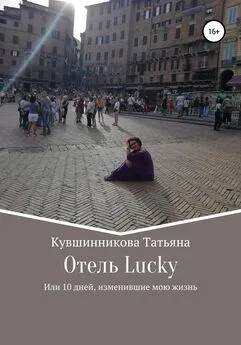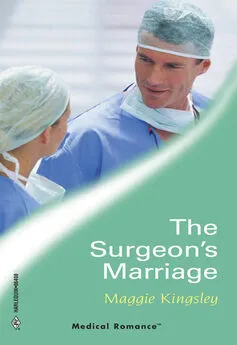Kingsley Amis - Lucky Jim
- Название:Lucky Jim
- Автор:
- Жанр:
- Издательство:неизвестно
- Год:неизвестен
- ISBN:нет данных
- Рейтинг:
- Избранное:Добавить в избранное
-
Отзывы:
-
Ваша оценка:
Kingsley Amis - Lucky Jim краткое содержание
Lucky Jim - читать онлайн бесплатно полную версию (весь текст целиком)
Интервал:
Закладка:
'Well, nothing really,' Dixon said in alarm. 'I had a little brush with him just now, that's all. I got into some mix-up over his girl's name, and he was a bit offensive, I thought. Nothing drastic.'
'Oh, that's quite typical,' Carol said. 'He always thinks he's being got at. He often is, too.'
'Oh, you know him, do you?' Dixon said. 'I'm sorry, Carol; is he a great pal of yours?'
'Hardly that. We saw a bit of him last summer, you know, Cecil and I, before you got your job. He can be quite entertaining at times, actually, though you're quite right about the great-painter stuff; it does get you down occasionally. You've met him once or twice, haven't you, Margaret? What did you think of him?'
'Yes, I met him when he came down before. I thought he was all right when you got him on his own. I think he feels that when he's got an audience he's got to play up to it and impress everyone.'
A great baying laugh made all three turn round. Bertrand, leading Goldsmith by the arm, was approaching. With the remnants of his laughter still trickling from his face, he said to Carol: 'Ah, there you are, dear girl. And how are things with you?'
'Well enough, thank you, dear man. I can see how things are with you. A bit out of your usual run, isn't she?'
'Christine? Ah, now there's a grand girl for you, a grand girl. One of the best, she is.'
'Any plans for her?' Carol pursued, smiling slightly.
'Plans? Plans? No no, no plans at all. Unquestionably none.'
'Not like you, old boy,' said Goldsmith's furry monotone, so different from his bawling tenor in song.
'At the moment, quite frankly, she's made me more than a little piqued,' Bertrand said, making a circle of thumb and forefinger to emphasize the last word.
'How's that, Bertrand?' Goldsmith asked solicitously.
'Well, as you may imagine, despite my passionate interest in this kind of sport,' he nodded towards the piano, where the amateur violinist was tuning his violin with the cooperation of the local composer, 'it isn't quite enough to draw me down here unaided, glad as I am to see you all. No no; I had been promised a meeting with one Julius Gore-Urquhart, of whom you may have heard.'
Dixon had indeed heard of Gore-Urquhart, a rich devotee of the arts who made occasional contributions to the arts sections of the weekly reviews, who had a house in the neighbourhood where persons of distinction sometimes came to stay, and who was a fish that Welch had more than once vainly tried to land. Dixon looked again at Bertrand's eyes. They really were extraordinary: it seemed as if a sheet of some patterned material were tacked to the inside of his face, showing only at two arbitrary loopholes. What could a man with such eyes, such a beard, and (he noticed them for the first time) such dissimilar ears have to do with a man like Gore-Urquhart?
He learned what they had to do with each other in the next minute or two. As yet, the connexion was tenuous: the Callaghan girl, who knew Gore-Urquhart's family, or was even perhaps his niece, had arranged to introduce Bertrand to him during the current week-end. At some late stage it had been found that Gore-Urquhart was at present in Paris, so that a further visit to this part of the world would have to be undertaken to meet him. There was some reason, which Dixon at once forgot, why a meeting in London would be less satisfactory. And what was Gore-Urquhart going to do for Bertrand when they did meet?
When Margaret had asked for this information in her circumlocutory way, Bertrand raised his great head and looked down his cheeks from face to face before replying. 'I have it on more than ordinarily good authority,' he said in measured tones, 'that our influential friend will shortly be declaring his private secretaryship vacant. I doubt whether the post will be publicly competed for, and so I'm at the moment busily engaged in grooming myself for the part. Patronage, you see, patronage: that's what it'll be. I'll answer his letters with one hand and paint with the other.' He gave a laugh in which Goldsmith and Margaret joined. 'So I'm naturally anxious to strike while the iron's hot, if you'll pardon the expression.'
Why shouldn't they pardon the expression? Dixon thought. Why?
'When do you think you'll be down again then, old boy?' Goldsmith asked. 'We'll have to fix something up. Haven't had a chance this time.'
'Oh, in a fortnight or so, I expect,' Bertrand said, then added significantly: 'Miss Callaghan and I have another engagement for next week-end. You'll understand I don't want to miss that.'
'The week-end after's the Summer Ball at the College.' Margaret cut in quickly, in an attempt, Dixon supposed, to smother the overtones of this last declaration. How could Bertrand possibly bring himself to say things like that in front of one woman he hardly knew and one man he must guess hadn't liked him all that much at a first meeting?
'Oh, is it really?' Bertrand asked with apparent interest.
'Yes; will you be coming again this year, Mr Welch?'
'I might manage it, I suppose. I remember being not unentertained last time. Ah, I see cigarettes are being produced. I like cigarettes. May I detach one from your store, Cecil? Good. Well, what about this Ball, then? They won't be able to keep you away, I suppose?'
'Afraid they will this time,' Goldsmith said. 'There's a conference of teachers of history then at Leeds. Your father wants me to go to it.'
'Dear, dear,' Bertrand said. 'That's most unfortunate, most unfortunate. Isn't there anyone else he could send?' He looked over at Dixon.
'Afraid not. We went into all that,' Goldsmith said.
'Pity, pity. Ah well. Will any other members of the company be attending, I wonder?'
Margaret glanced at Dixon, and Carol said: 'What about you, Jim?'
Dixon shook his head firmly. 'No, I've never been much of a dancing man, I'm afraid. As far as I'm concerned it would be just money thrown away.' It would be terrible if Margaret blackmailed him into taking her.
'Oh well, we don't want that, do we?' Bertrand said. 'That wouldn't do at all. I wonder where young Callaghan has got to. Her nose must be fairly thickly encrusted with powder by now, I should hazard. And why the delay among the musicians?'
Dixon looked over and saw that the two performers, tuning evidently completed, music set up, and bow resined, were hanging about smoking and chatting. Welch was nowhere to be seen; he must be displaying his rather terrifying expertise as an evader. At the other end of the long, low, softly-lit room the door opened and the Callaghan woman came in. For so well-built a girl Dixon thought she moved awkwardly.
'Ah, my dear,' Bertrand said with a gallant bow, 'we were wondering what had become of you.'
She seemed disconcerted.' Oh, I've only been…'
'We've been discussing Mr Gore-Urquhart, and wondering whether he'll be available the week-end after next, there being a species of dancing festivity at the College during that time. Can you enlighten us, I wonder?'
'Well, his secretary said he'd probably be in Paris till the middle of next month, which would be too late for that, wouldn't it?'
'Yes, I think it would. Yes, it would. Oh well, it'll have to be another time, won't it?' He didn't appear at all put out by this news.
'I've written to Uncle asking him to let me know when he's coming back.'
Dixon wanted to laugh at this. It always amused him to hear girls (men never did it) refer to 'Uncle', 'Daddy', and so on, as if there were only one uncle or daddy in the world, or as if this particular uncle or daddy were the uncle or daddy of all those present.
'What's the joke, Jim?' Carol asked. Bertrand stared at him.
'Oh, nothing.' He returned Bertrand's stare. He wished there were some issue on which he could defeat Bertrand, even at the risk of alienating his father. Any measure short of, or not necessitating too much, violence would be justified. But there seemed to be no field of endeavour where he could employ a measure of that sort. For a moment he felt like devoting the next ten years to working his way to a position as art critic on purpose to review Bertrand's work unfavourably. He thought of a sentence in a book he'd once read: 'And with that he picked up the bloody old towser by the scruff of the neck, and, by Jesus, he near throttled him.' This too made him smile, and Bertrand's beard twitched, but he said nothing to break the pause.
As ever, Margaret had thought of something to say: 'I was reading about your uncle only recently, Miss Callaghan. There was a piece about him in the local paper. He was presenting some water-colours to our Gallery here. I don't know what we should do without someone like him to keep things going.'
This remark, in itself virtually unanswerable, had the effect, familiar to Margaret's acquaintances, of dumbfounding its audience by the obviousness of its intention - namely, the intention of forcing them to talk. Some feet away the amateur violinist could be heard laughing huskily at something the local composer was telling him. Where was Welch?
'Yes, he is very generous,' the Callaghan girl said.
'It's a good job there are some people still about who can afford to be, in that way,' Margaret said. Dixon looked up to catch Carol's eye, but she was exchanging a glance with her husband.
'Well, there won't be much longer, I fear, if the lads at Transport House go on running our lives for us,' Bertrand said.
'Oh, I don't think this crowd have done too badly,' Goldsmith put in. 'After all, you can't…'
'Their foreign policy might, I agree, have been a good deal worse, with the exception of their spectacular inability to pour water on troubled oil.' Bertrand looked quickly round the group, then went on: 'But their home policy… soak the rich… I mean…' He seemed to be hesitating. 'Well, it is that, pure and simple, isn't it? I'm just asking for information, that's all. I mean that's what it seems to be, don't we all agree? I take it that it is just that and no more, isn't it? or am I wrong?'
Pretending not to notice Margaret's warning frown and Carol's expectant grin, Dixon said quietly: 'Well, what's wrong with it, even if it is that and no more? If one man's got ten buns and another's got two, and a bun has got to be given up by one of them, then surely you take it from the man with ten buns.'
Bertrand and his girl were looking at each other with identical expressions, shaking their heads, smiling, raising their eyebrows, sighing. It was as if Dixon had just said that he didn't know anything about art, but he did know what he liked. 'But we don't think anybody need give up a bun, Mr Dixon,' the girl said. 'That's the whole point.'
'Hardly the whole point, I should have thought,' Dixon said at the moment when Margaret said 'Don't let's get involved in a set-to about…' and Bertrand said 'The whole point of this is that the rich…'
It was Bertrand who won the little contest. 'The point is that the rich play an essential role in modern society,' he said, his voice baying a little more noticeably. 'More than ever in days like these. That's all; I'm not going to bore you with the stock platitudes about their having kept the arts going, and so on. The very fact that they are stock platitudes proves my case. And I happen to like the arts, you sam.'
The last word, a version of 'see', was Bertrand's own coinage. It arose as follows: the vowel sound became distorted into a short 'a', as if he were going to say 'sat'. This brought his lips some way apart, and the effect of their rapid closure was to end the syllable with a light but audible 'm'. After working this out, Dixon could think of little to say, and contented himself with 'You do', which he tried to make knowing and sceptical.
Читать дальшеИнтервал:
Закладка:







